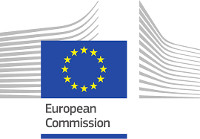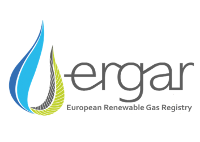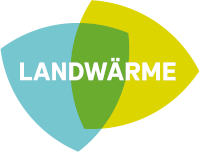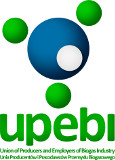| Article Index |
|---|
| Start |
| Agenda |
| Speakers |
| Registration |
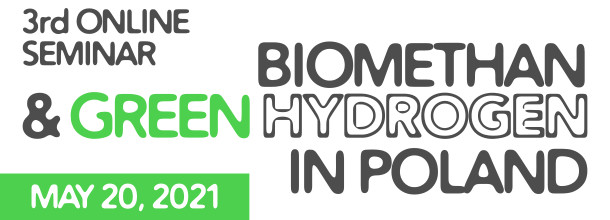

|
9:00 - 9:30 |
Participants log in to the conference platform |
|
9:30 - 9:55 |
Introduction lecture - World Biogas Association |
| 9:55 - 10:35 | The revision of the TEN-E Regulation and the role of gas infrastructure
Speaker: Miklós GÁSPÁR, Team leader, European Commission, DG Energy, Unit C4 – Infrastructure and regional cooperation |
| 10:35 - 11:00 |
Experience and biomethane support scheme on the German market.. Biogaspartner project - platform for biomethane injection into gas network Germany is the largest European biogas and biomethane market. The dynamic development of the sector results primarily from the appropriate legislation introducing favorable support schemes – the so-called EEG Act (Erneuerbare-Energien-Gesetz). There are currently 232 biomethane plants. In order to improve the process of biomethane injection into the gas network, the German regulator - DENA developed the “biogaspartner” project. The purpose of this project is to create a platform for biomethane injection into the gas network. Stakeholders throughout the supply chain join the project to support the development of the young market. The project started as a national initiative, but is now also becoming international. Speaker: Klaus Völler, Expert, Renewable Gases, Bioenergy and Energy Statistics, Deutsche Energie-Agentur GmbH (dena- German Energy Agency) |
| 11:00 - 11:25 |
Italian method. Biomethane for sustainable transport:
Speaker: Dr Lorenzo Maggioni, Head of Research and Development, Italian Biogas Consortium |
| 11:25 - 11:50 | Biomethane market in France from the perspective of a distributor on the gas market The biogas and biomethane market in France is one of the most dynamic in Europe. The amount of biomethane injected into the French distribution networks reached 1235 GWh in 2019, while the amount of BioNGV used by vehicles as fuel reached 250 GWh. In addition, 21 500 vehicles used NGV as fuel. 123 plants, out of a total of 860, injected biomethane into the natural gas distribution systems. At this point, almost 2 thousand biomethane injection projects are known to be at various stages of development, and their total potential production capacity is 24 TWh/year. Speaker: Bastien Praz, Chargé de développement Biométhane, GRDF |
| 11:50 - 12:15 | Quality requirements for biomethane in the DSO gas network
Speaker: |
| 12:15 - 12:40 | Role of biomethane in the transport decabornization process
Izabela Samson-Bręk, Director for Quality and Sustainable Development, National Chamber of Biofuels |
| 12:40 - 13:15 | Projekt ERGaR project (European Renewable Gas Registry) Cross-border certification scheme for biomethane and green hydrogen The ERGarR project was established in 2016. It created foundations for cooperation between European biomethane certification registers, which will enable cross-border trade in certificates of origin. ERGaR is a Europe-wide recognized organization for virtual administering and balancing volumes of renewable gases distributed in the European natural gas network. Speaker: Flore Belin, Deputy Secretary General and Policy Adviser at ERGaR (European Renewable Gas Registry) |
| 13:15 - 14:00 | Break |
| 14:00 - 14:25 | Case study: Italy Speaker: Stefano Begnini, Responsible for Biomethane, Envitec Biogas Italia |
| 14:25 - 14:50 | Polish regulatory perspective Speaker: Szymon Byliński, Director, Department of Electromobility and Hydrogen Management Ministry of Climate and Environment |
| 14:50 - 15:15 | Renewable gases in Europe and Poland: Why must the EU promote the use of all renewable gases and harmonize cross-border trade practices? Speaker: Zoltan Elek, CEO, Landwärme |
| 15:15 - 15:40 |
Current possibilities of financing biomethane and hydrogen projects – “New Energy” program
Wojciech Kwiatkowski, Manager, Finance Team, SAS Advisors |
| 15:40 - 15:50 | Question session. Seminar closing |




